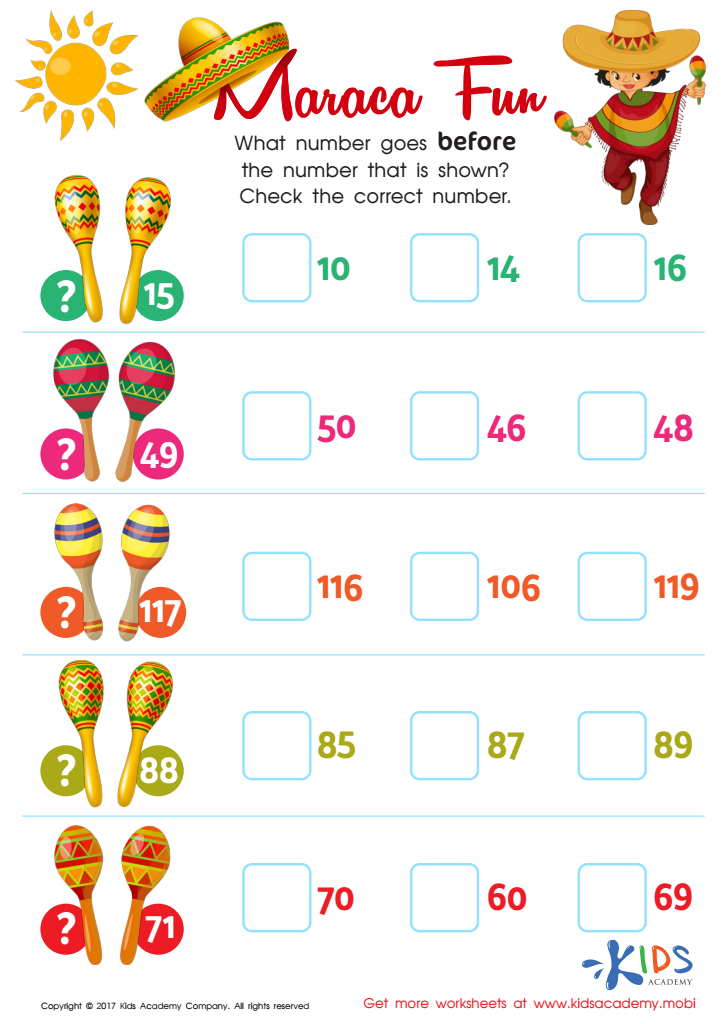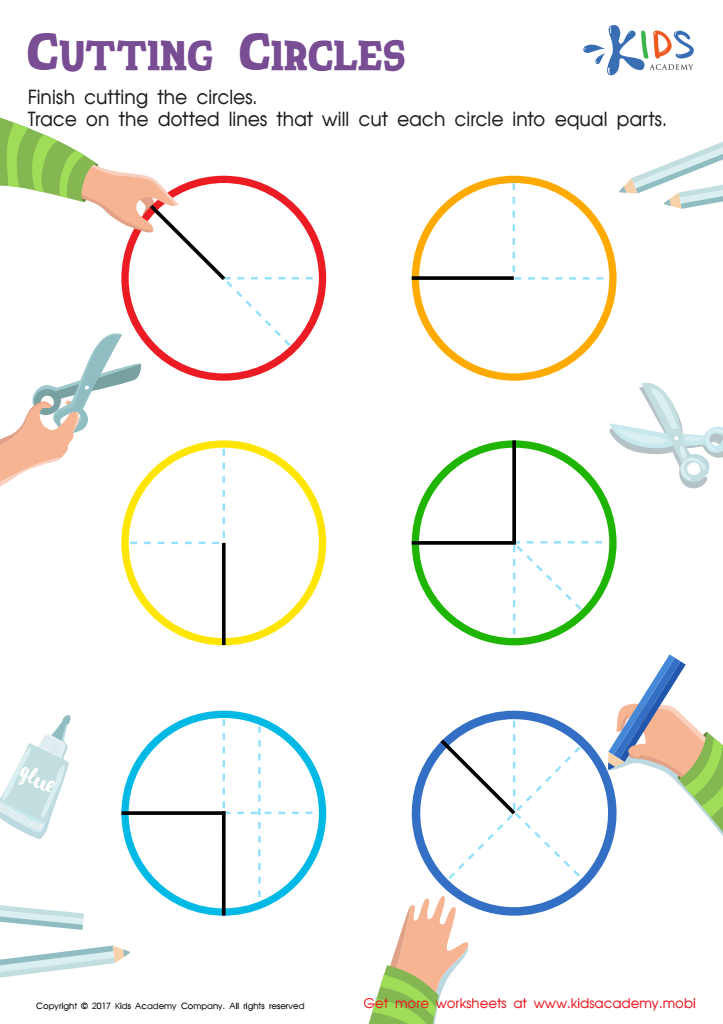Develops fine motor skills Math Worksheets for Ages 5-7
3 filtered results
-
From - To
Discover our 'Develops Fine Motor Skills Math Worksheets for Ages 5-7' designed to enhance your child’s hand-eye coordination while building essential math skills. These engaging worksheets from Kids Academy guide young learners through tracing numbers, counting, and simple addition and subtraction, all while honing their precision and control. Perfect for kindergarten and early elementary students, each activity supports your child’s developmental milestones and transforms learning into a playful and productive adventure. Boost confidence and encourage a love for math with vibrant, interactive exercises tailored for young minds. Start your child's journey towards academic success today!


Counting: Maraca Fun Worksheet


Cutting Circles Worksheet
Developing fine motor skills in math for children aged 5 to 7 is crucial for their overall academic and personal growth. Fine motor skills involve precise movements involving the small muscles in the hands and fingers, and they significantly impact a child's ability to write numbers, use math tools, and manipulate objects necessary for learning math concepts.
Firstly, fine motor skills are essential for handwriting. Properly forming numbers is foundational in early math learning, and children who struggle with fine motor skills may find it difficult to write numbers legibly, which can impede their ability to complete math worksheets or understand notes they take.
Secondly, manipulating objects like counting beads or using a ruler in measurement tasks requires fine motor coordination. Hands-on activities are a significant part of early math education and allow children to experience abstract concepts in a tangible way. Strong fine motor skills ensure that children can effectively engage in these activities, leading to better comprehension and retention of math concepts.
Lastly, fine motor skill development contributes to a child's confidence and independence. Mastering tasks that require these skills then boosts their self-esteem and encourages a positive attitude towards learning, creating a far-reaching impact beyond math, spanning into various academic areas and day-to-day activities. Thus, parents and teachers should prioritize nurturing fine motor skills alongside math education as it sets a strong foundation for future success.
 Assign to My Students
Assign to My Students




















